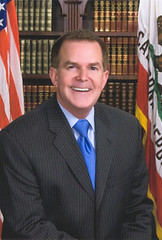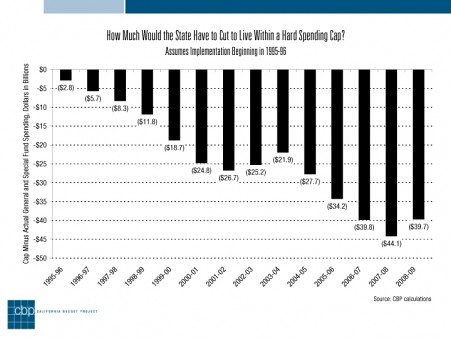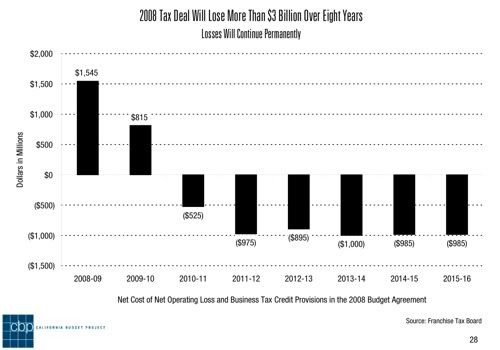Two nominations here. By the way, since it recently came up in comments, the reason we here at Calitics call the California Republican Party the “Yacht Party” can be best explained here and here.
 Nominee #1: Sen. Roy Ashburn of Bakersfield, who introduced a bill that would eliminate IOUs for tax refunds.
Nominee #1: Sen. Roy Ashburn of Bakersfield, who introduced a bill that would eliminate IOUs for tax refunds.
State Sen. Roy Ashburn, R-Bakersfield, has introduced legislation requiring California’s controller to issue state income tax refunds in cash.
Controller John Chiang has announced his office will have to delay refunds for 30 days starting Feb. 1 because of the state’s cash-flow problems. He has threatened he may have to issue refunds in the form of IOUs if a budget addressing the $41 billion shortfall the state’s projected to have by mid-2010 isn’t passed.
Chiang has said refunds will resume when he’s sure there’s enough state cash on hand.
Ashburn has said tax refund money belongs to the taxpayers, not the government, and taxpayers should get it back in the form it was paid – “cold, hard cash.” California’s constantly taking in cash, he’s said.
Hey Roy, I know a bill you could pass that would get cold hard cash back in the hands of your constituents. It’s called the budget, and without it California is out of money, and fiduciary responsibilities (sorry for the $1 word) stipulate that other priorities must be paid first. It’s called “how government works,” and though you’re a State Senator I’m not surprised at your ignorance.
 Nominee #2: Faux-moderate Abel Maldonado, angry about the Controller’s office “requesting new furniture” even though the current Controller, uh, didn’t do that.
Nominee #2: Faux-moderate Abel Maldonado, angry about the Controller’s office “requesting new furniture” even though the current Controller, uh, didn’t do that.
“I don’t like the fact that hard working people in my district are getting IOUs and he’s buying millions of dollars worth of furniture,” Maldonado said in an interview. (For the record, taxpayers due refunds from the state and others missing payments aren’t getting IOUs just yet. They’re simply not receiving anything at all.) […]
Chiang’s office struck back, calling Maldonado’s accusation “pathetic.”
“Had he done any homework, the senator should have realized that the expansion project, including furniture,…began before Controller Chiang took office,” his office said.
Further, Chiang’s office argued, the controller “demanded that staff cut down the costs, and by changing financing, materials, design, and construction, reduced the overall expense of the project by more than 50 percent” – a $4 million savings.
Next for Maldonado, he’ll lambaste Arnold Schwarzenegger for Prop. 187. Wanker.


